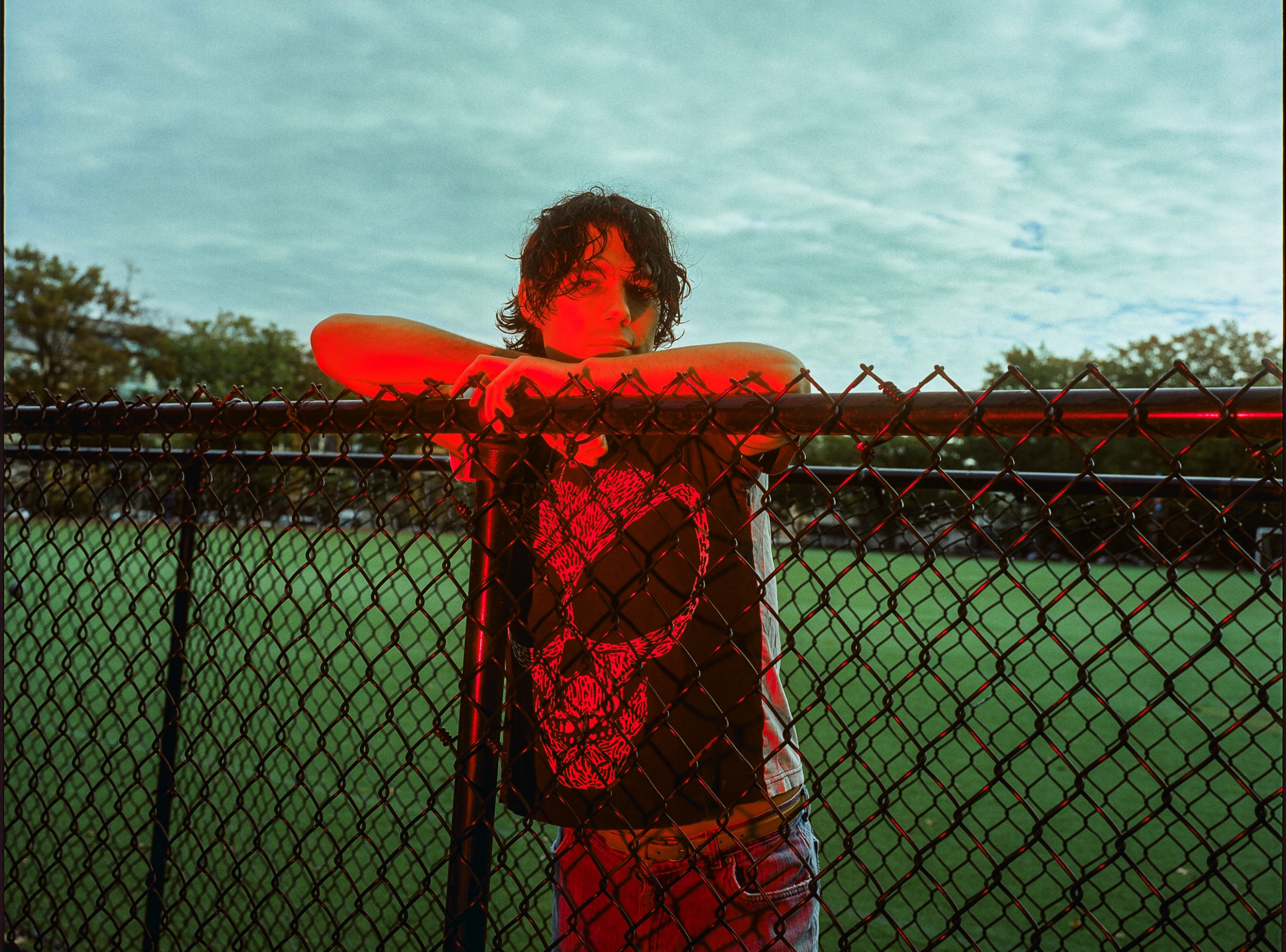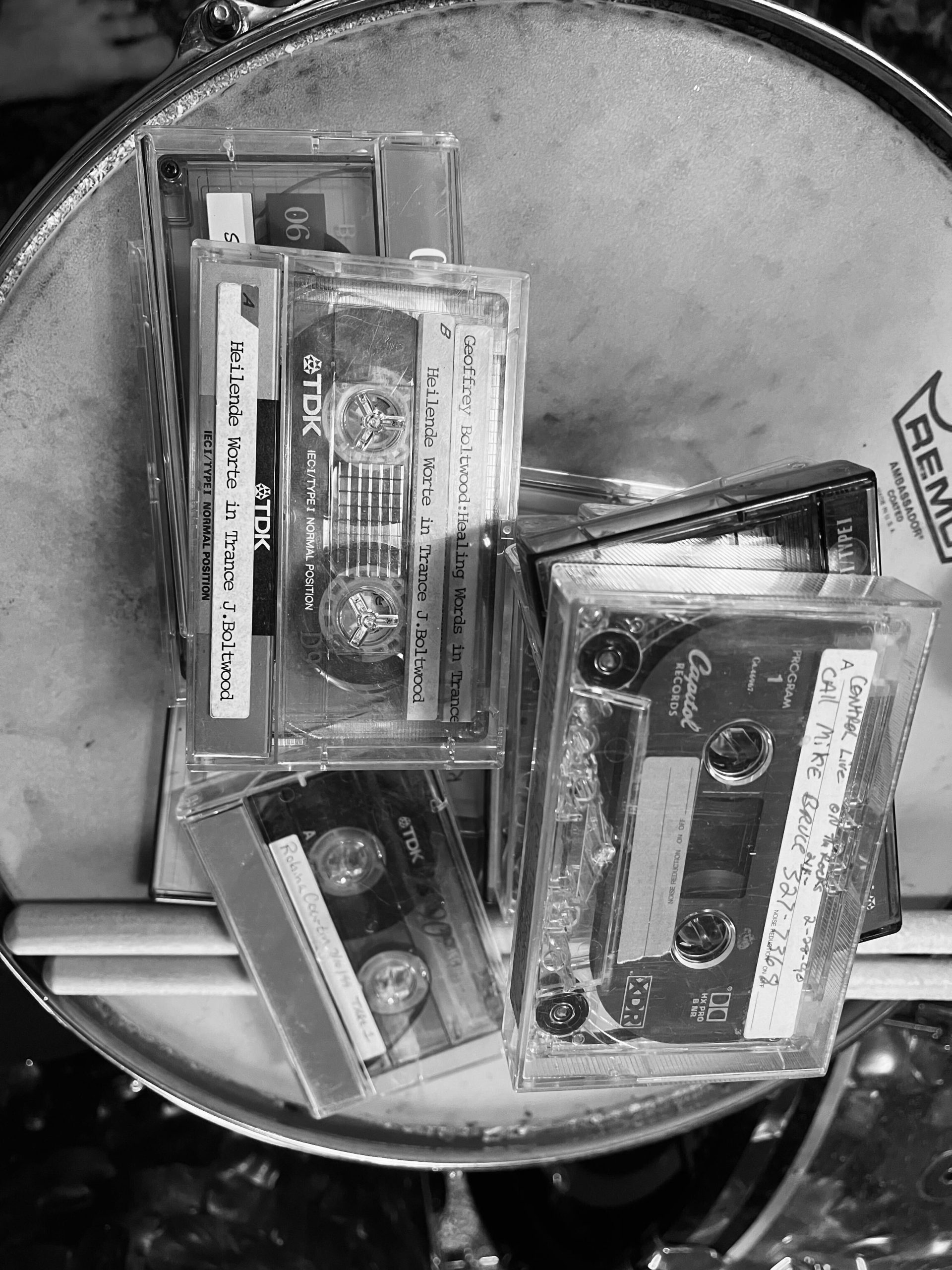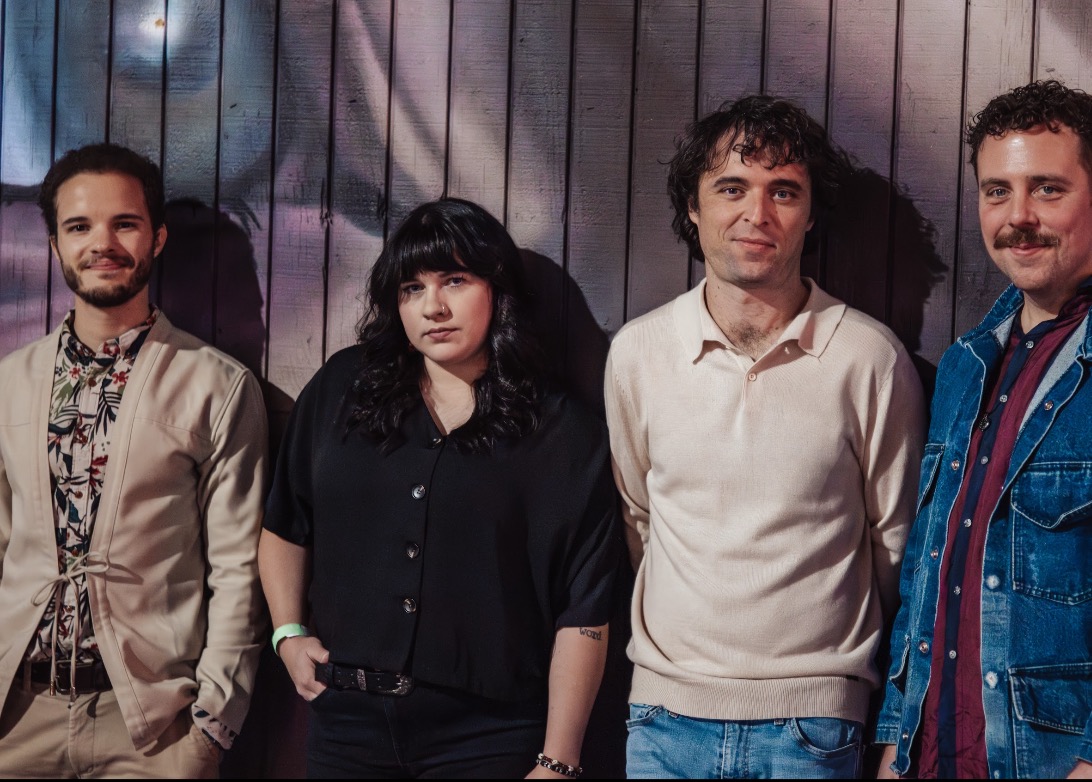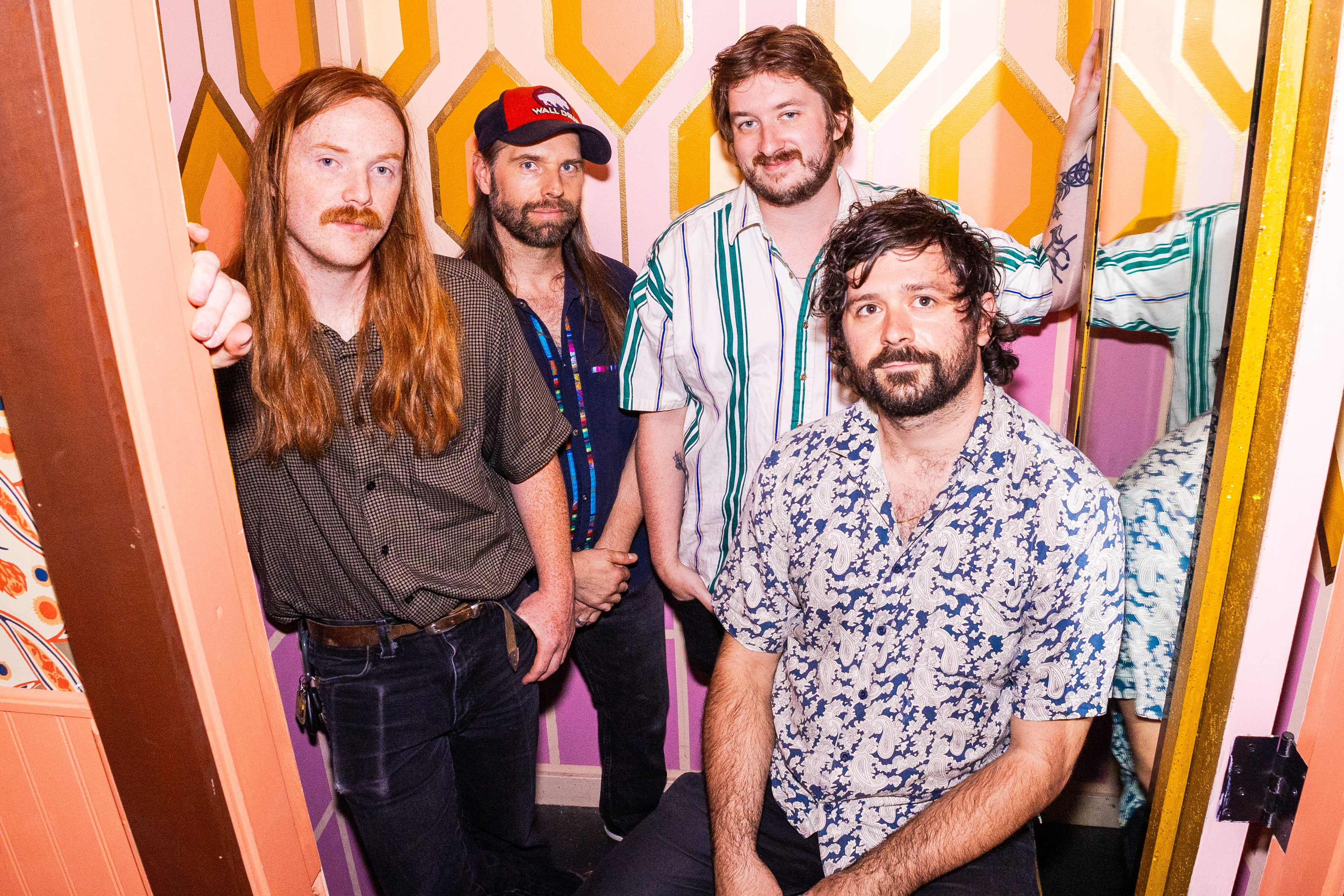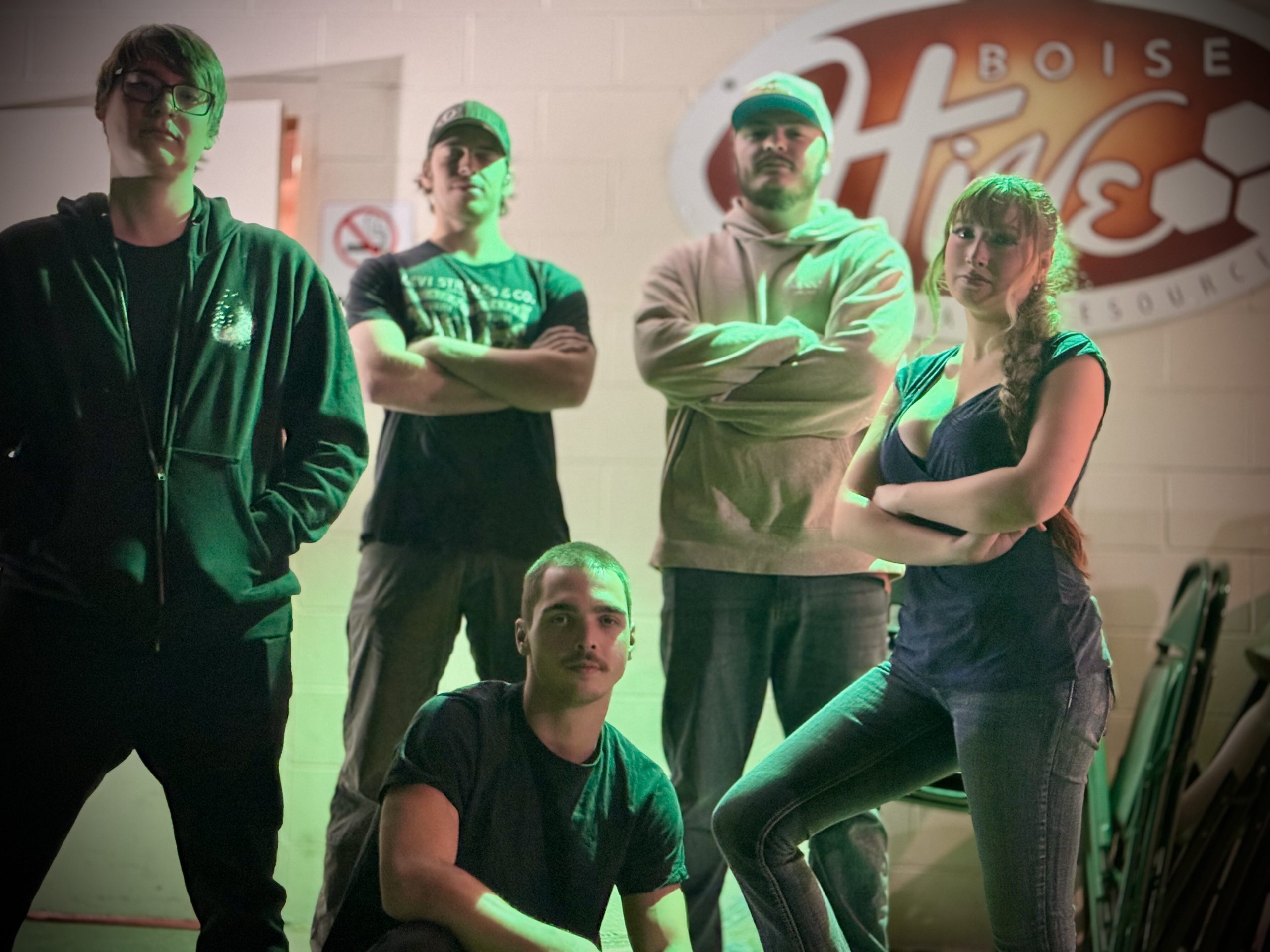
Nick Llobet (they/them) was ready to throw in the towel. Llobet, who grew up in South Florida, learned to play guitar at a very young age, dabbling in everything from classical, blues, classic rock, and flamenco. They’d spent much of their early 20s searching for their voice as an artist and as an individual, as well as for a musical community. Llobet would eventually move to Brooklyn, but after three years of looking for a hopeful artistic breakthrough, they spent much of their time in seclusion, consumed by social anxiety and imposter syndrome—and they were considering abandoning songwriting completely.
One day, while commuting through Penn Station and en route to their partner’s family home in Virginia (that would also lead to the crucial purchase of a secondhand Tascam cassette recorder), they noticed Patti Smith sitting alone, waiting for a train. The typically shy Llobet decided to approach the icon, who was, in turn, delighted to see that Llobet was carrying a guitar. At the end of their interaction, Smith offered some parting wisdom: “She wished me luck and said, ‘Practice hard, Nick.’”
Llobet took her advice to heart, and this chance encounter kicked off a personal and artistic rebirth. They started performing as youbet, a play on their last name, and began “changing [their] vision for what a song could be.” Eventually, this journey resulted in youbet’s latest record, Way To Be. Across 12 delightfully off-kilter tunes, Llobet uses wordplay and tongue-in-cheek humor to obliquely explore dysfunctional relationships, regret, self-confidence or the lack thereof, queerness, and self-discovery. Fuzzy at the edges and filled with playful, kinetic arrangements, Way To Be is a bridge into the entrancing world of youbet. You won’t want to leave.
Way To Be arrives four years after youbet’s debut, Compare & Despair, a delightful gem of a record that showcases Llobet’s propensity for freewheeling whimsy and emotional intensity. In May 2019, they were inspired by a song-a-week writing group that produced Compare & Despair. Llobet decided to helm a second club in which contributors would upload that week’s song to a private Bandcamp. Invigorated by this small musical collaboration, the feedback, and the accountability, Llobet wrote 18 songs throughout the duration of the club (Twelve of these songs became Way To Be).
After this songwriting marathon, Llobet spent 2020 focusing on instrumental guitar work and political engagement. By the summer of 2021, they were ready to revisit the Way To Be tracks. Over the next year-and-a-half, Llobet worked on the record relentlessly, refining the lyrics, recording, and arrangements from their apartment. Llobet self-produced Way To Be and describes the process as an enormous, labor-intensive undertaking that felt akin to “making a whole film.” Along the way, Llobet was joined by collaborators, including Julian Fader (Ava Luna), Adam Brisbin (Buck Meek), and Daniel Siles.
Llobet is also an abstract storyteller, preferring to structure songs around snapshots of their life. Take “Carsick,” Way To Be’s lead single, which dances around Llobet’s frustration with their own addictive personality. “I tend to do things in excess, I like to party, sometimes a little too hard,” they say, “I wish I could be more in control of myself, hence the lyric ‘Knowing when to stop/It must be sweet.’”
Many of these songs touch on the duality of self-love and self-loathing, like on the downcast “Nurture.” But even when the subject matter is heavy, playfulness is an intrinsic part of Way To Be. Across the album, darkness is regularly softened by Llobet’s inclination towards lightheartedness. “Seeds of Evil,” a topsy-turvy study of self-criticism, plays with this contrast, pairing a lovely melody with devilish lyrics about losing perspective. “It’s choose your own adventure music,” Llobet says. “I like to keep listeners on their toes.”
Indeed, the songs on Way To Be are unpredictable, and each listen offers the opportunity to dig into a new aspect of the album, from Llobet’s distinctively high voice to their complex guitar playing. “Peel,” which combines the Flamenco guitar techniques Llobet studied as a teen with a rhythm inspired by Maybelle Carter, is especially invigorating. The most labor-intensive track on the album, Llobet says that “Peel”’s lyrics—“I tried a dream/And took it too far”—reflect their exasperated mental state during the writing process. Through its nods to Llobet’s musical education and Miami beaches, “Peel” connects their past and present.
Llobet concludes, “Every song I birth is an opportunity to reinvent myself and gives me a chance to perform through a different spiritual filter. Each song is like a creature that lives within the depths of my soul, waiting to be written. I have this growing collection of spirit demons that keep me company in my creative life.”
SIMILAR ARTISTS
